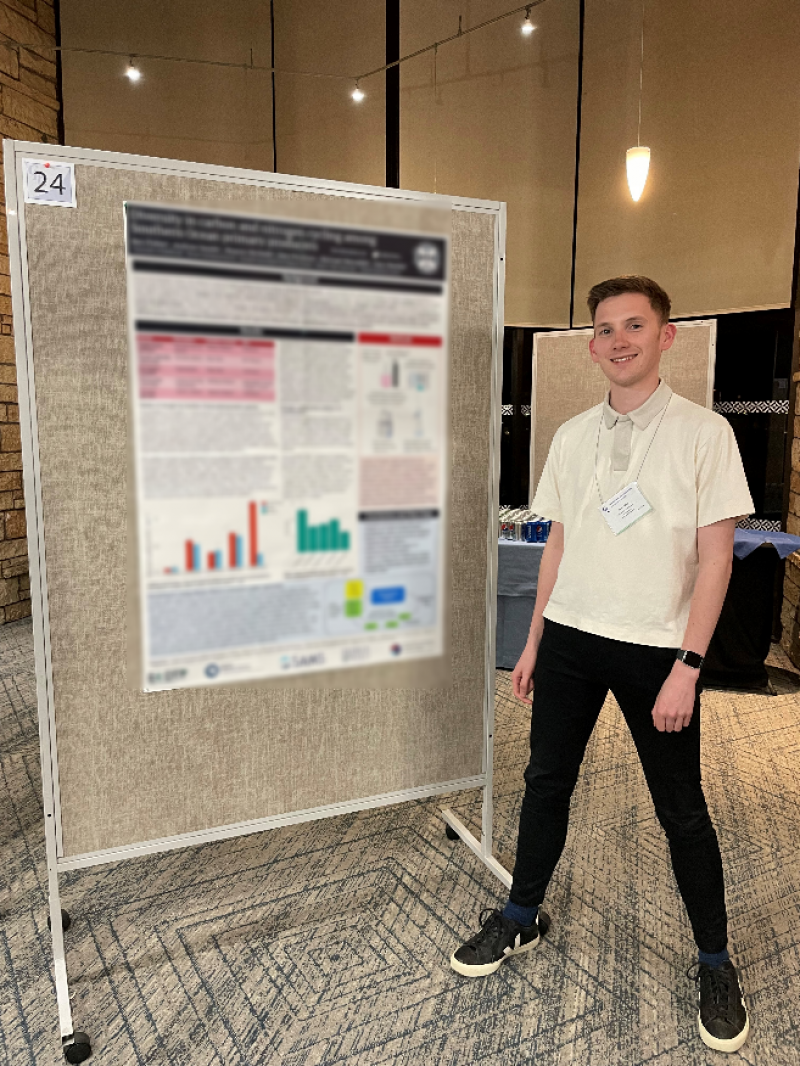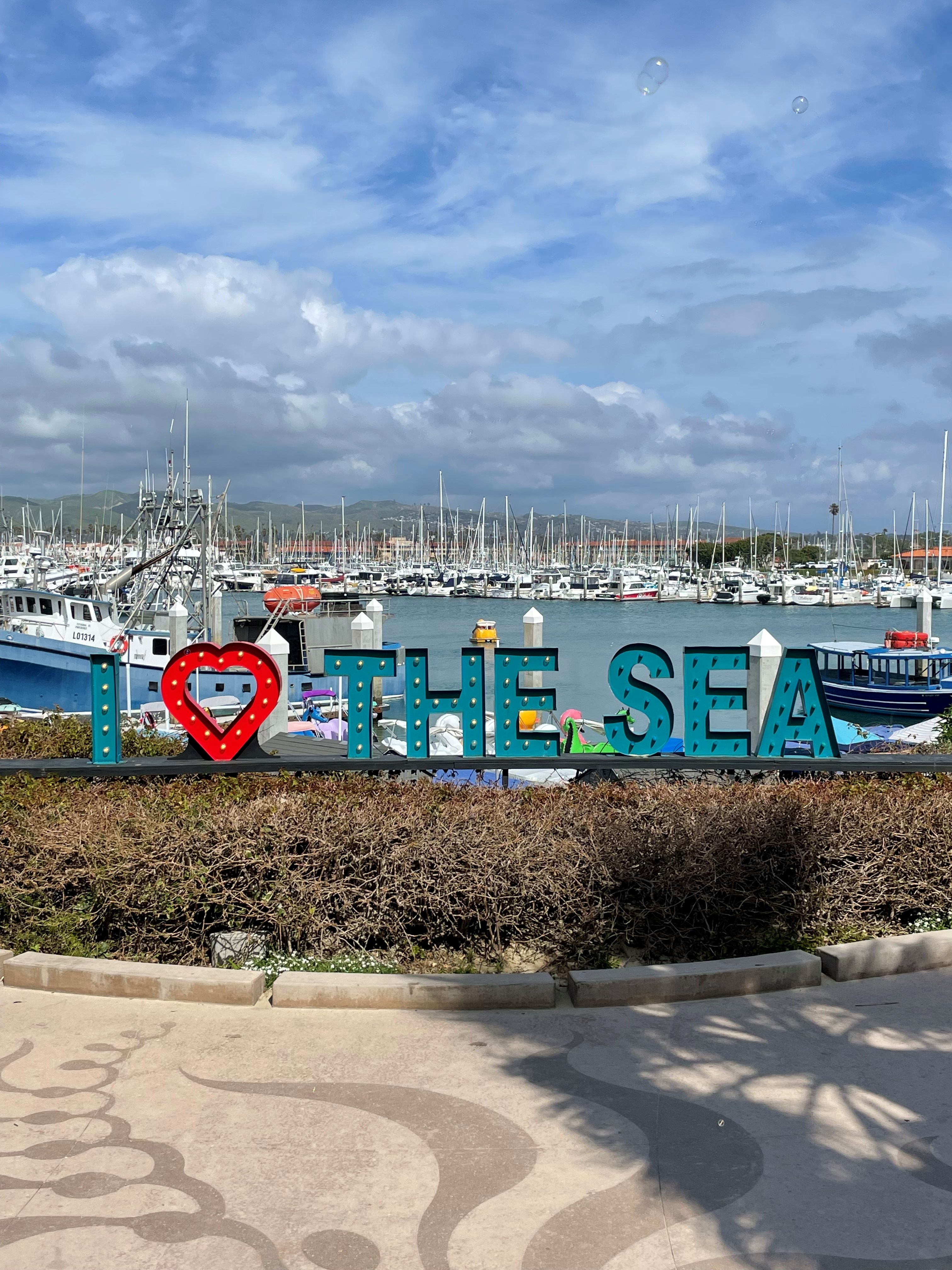Polar Marine Science Gordon Research Conference
Ben Fisher
University of Edinburgh

I was awarded a Challenger Society travel grant to attend the Polar Marine Science GRC in Ventura, CA at the start of March 2023. This bi-annual conference brings together scientists from across the globe to discuss the latest research in Arctic and Antarctic research. Gordon Research Conferences are somewhat unique in being “off the record”, meaning that photos and videos are not allowed, designed to encourage authors to share unpublished and early stage work. Additionally, everyone stays in the same hotel and has meals and free time together each day to promote networking and forming new collaborations. Being a relatively small conference, with around 100 attendees, it is an intimate environment and you get to know most of the people by the end of the week. The GRC is preceded by the Gordon Research Seminar on the weekend before the conference begins. The seminar is a 2 day mini-conference, catering to early career researchers, allowing PhD students and postdocs the opportunity to practice presenting their research to a group of peers, and to get to know one another before the main conference begins. For the GRS I additionally took on the role of co-discussion leader for the session Polar Oceans Variability Under the Temporal Resolution Lens, introducing speakers and encouraging questions from the audience.

Caption: Ventura harbour, the setting of the conference
The conference itself covered a vast array of topics relevant to Polar Science, initially beginning with sessions on large scale physical processes, before moving on to sea ice, biogeochemistry, ecosystems, food webs and ocean-ice-atmosphere interactions. The week ended with a very interesting session on social-ecological systems, including the participation of Inuit researchers in Arctic science and the implementation process behind Southern Ocean marine protected areas. With 30 minute presentations and around an hour of discussion time for each session, the speakers had time to get in to the details of their work and the audience really engaged with not only the substance of the talk, but also considered how the presented research could inform their own studies. Audience members sought to draw parallels between talks, meaning that knowledge gaps and opportunities for future research became apparent. I am sure that many future collaborations will have been formed on the floor of that conference room! The free time we had each afternoon allowed for informal networking, trips to the beach, ice cream and even our accidental attendance at the Ventura mermaid festival one afternoon. I decided against returning to the conference session with face paint, but did enjoy meeting a talking parrot. Each day, the poster session followed free time, split up in to multiple blocks such that poster authors had the opportunity to view the other posters in their session without needing to attend to their own poster. However, during the 2 sessions where I did present my poster I was blown away by the amount of engagement I had compared to other conferences I had attended. Lots of people showed interest in my work, offered advice on how I might frame the results or augment them with further research. By the end of the second session I had very nearly lost my voice from talking through my poster with so many people! I left the conference feeling inspired about my own research as well as future opportunities and collaborations with many of the great scientists I had the pleasure of meeting during the GRC, I am very much looking forward to 2025 for the next one.
Latest News
Royal Society Publishing Photography Competition 2025
Please see a message from the Royal Society below:
We are delighted to announce that the 2025 Competition is now open for entries until 15 August for a chance to win £1000! The competition celebrates the power of photography in conveying the wonder of science happening all around us and photographs can be submitted in the categories of: Astronomy, Behaviour, Earth Science and Climatology, Ecology and Environmental Science, and Microimaging.
The competition is free to enter and open to anyone studying or working in science at graduate level or above. Category winners will receive a one-year membership to the Royal Photographic Society and the overall winner will receive a grand prize of £1,000. Find out more: https://bit.ly/RSPphotocomp
October 2025 MEDIN Workshop: Marine Data Management, Governance and the MEDIN toolset
The Marine Environmental Data and Information Network (MEDIN) are pleased to announce that registration is now open for the next occurrence of our popular free online training workshop: ‘Marine Data Management, Governance and the MEDIN toolset’ on the 13th – 17th October 2025 on OceanTeacher Global Academy.
Marine Data Management, Governance and the MEDIN toolset
The Marine Environmental Data and Information Network (MEDIN) and OceanWise are delighted to invite you to attend our popular free online training workshop: ‘Marine Data Management, Governance and the MEDIN toolset’ on the 19th – 23rd of May 2025.
